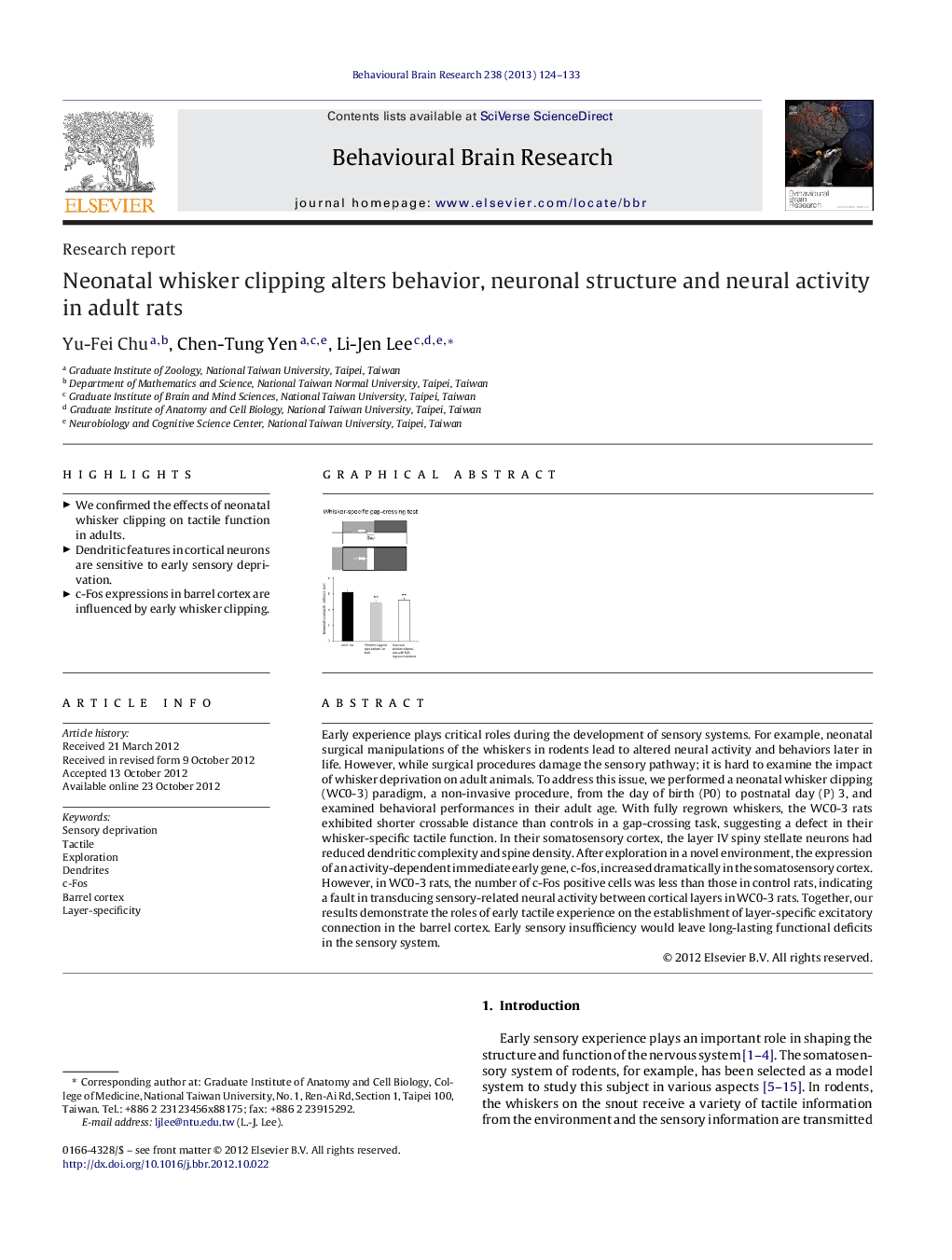| Article ID | Journal | Published Year | Pages | File Type |
|---|---|---|---|---|
| 4312914 | Behavioural Brain Research | 2013 | 10 Pages |
Early experience plays critical roles during the development of sensory systems. For example, neonatal surgical manipulations of the whiskers in rodents lead to altered neural activity and behaviors later in life. However, while surgical procedures damage the sensory pathway; it is hard to examine the impact of whisker deprivation on adult animals. To address this issue, we performed a neonatal whisker clipping (WC0-3) paradigm, a non-invasive procedure, from the day of birth (P0) to postnatal day (P) 3, and examined behavioral performances in their adult age. With fully regrown whiskers, the WC0-3 rats exhibited shorter crossable distance than controls in a gap-crossing task, suggesting a defect in their whisker-specific tactile function. In their somatosensory cortex, the layer IV spiny stellate neurons had reduced dendritic complexity and spine density. After exploration in a novel environment, the expression of an activity-dependent immediate early gene, c-fos, increased dramatically in the somatosensory cortex. However, in WC0-3 rats, the number of c-Fos positive cells was less than those in control rats, indicating a fault in transducing sensory-related neural activity between cortical layers in WC0-3 rats. Together, our results demonstrate the roles of early tactile experience on the establishment of layer-specific excitatory connection in the barrel cortex. Early sensory insufficiency would leave long-lasting functional deficits in the sensory system.
Graphical abstractFigure optionsDownload full-size imageDownload high-quality image (42 K)Download as PowerPoint slideHighlights► We confirmed the effects of neonatal whisker clipping on tactile function in adults. ► Dendritic features in cortical neurons are sensitive to early sensory deprivation. ► c-Fos expressions in barrel cortex are influenced by early whisker clipping.
